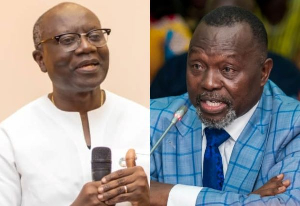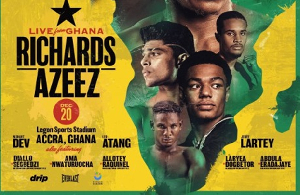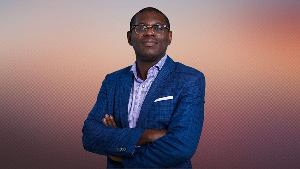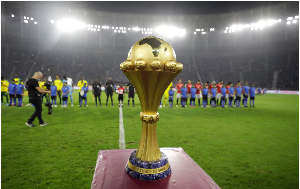Presidential Election 2008: The Aftermath of the Party Congresses
A week ago today, we saw the NPP select their candidate for the 2008 Presidential elections bringing to a close a process for the major political parties to select their choices.The NPP race was most notable because 18 people, all men, marched up and down our country campaigning to win the nomination. Eventually 17 of them went all the way to the ballot to see if they would get the nod of their party delegates. That large number of candidates included mostly former cabinet ministers, 8 of whom resigned en masse four months before the NPP congress. These presidential aspirants all stepped down from their important services to the nation to pursue the job of the person who hired them. In the end, was it worth their effort?
Going into the race, Nana Akuffo-Addo was favored to win and he did. The dark horse and the man whose reputation took the greatest beating was the runner-up, Alan Kyerematen. When Kyerematen was leaving his post as the Ambassador to the U.S., word was that he was going to be prepared for the next presidency of Ghana. Apparently this was true, as this presidential anointment turned his candidacy into a pro-Kufuor/anti-Kufuor issue. In the end, it is not clear that it was helpful. Between them, Akuffo-Addo and Kyerematen garnered1,843 (80%) of the 2,285 valid votes of the NPP candidates. The other 15 aspirants shared the remaining 442 votes.
Was this democracy at work? This is a debatable question. One may even ask whether the internal operations of a political party are required to follow any democratic principles. Our 1992 Constitution states: “The internal organisation of a political party shall conform to democratic principles and its actions and purposes shall not contravene or be inconsistent with this constitution or any other law.” The NPP prides itself as a party governed by true democratic principles and likes to contrast itself with the NDC that seems to be run largely according to the dictates of one person. Was the NPP presidential candidate selection process a true democratic process or an example of representative democracy run amok?
First, how could so many people feel that they could convince the party delegates (not the ordinary people of Ghana who may consider themselves as NPP members or sympathizers) to vote for them? Why would these men, some of them highly accomplished, be so blinded by their own personal ambitions to have traveled so far and achieve so little? Could they not have foreseen the futility of their quest a few months or weeks before the party congress? In the end, it was a 2-person race. Was this political naivety on their part or was the system rigged to delay the decision till the last minute. That is, did the delegates decide whom to vote for not based on their past record or their positions on important issues but based on other considerations that were realized only at the last minute. Several of the unsuccessful aspirants appeared stunned by their abysmal showing.
After seven years of untainted, selfless service to the nation and NPP, Vice President Aliu Mahama received only 146 (6.3%) votes. That was shocking and disappointing. Why so little confidence in the number two man in the leadership of the country? His poor performance cannot even be attributed to displeasure with the Kufuor administration because President Kufuor never expressed support for his own Vice. I hope Mahama’s failure was not because of his ethnicity – that in the NPP, northerners are good enough to balance the presidential ticket and pull in northern voters, as long as they serve under an Akan President.
I thought Osafo-Marfo and Addo-Kufuor would do better than they did. However, the results that surprised me the most were those of Prof. Kwabena Frimpong-Boateng. The candidacy of this brilliant heart surgeon was always a bit of an enigma. Those who know him well thought his “god-like” self-image could not withstand the rocky playing field of party politics in Ghana. In the end, with less than 1% of the votes, he did not convince the NPP delegates that he can give them and the country what he has done for many at the operating theaters at Korle Bu Teaching Hospital, a new lease on life. The greatest risk to representative democracy was the candidacy and campaign style of Alan Kyerematen. As the purported favorite of President Kufuor, his rise in notoriety almost split the party. He was tainted by the alleged infusion of money into the politics of NPP. He and his advisors must consider it a fatal error for allowing his nickname “Cash” to become his political image. In the end, he was hung by that bad name, as the congress was almost disrupted by allegations that his people were attempting to buy votes with cash.
The candidates spent months and millions of Ghana Cedis on their campaigns parading in front of and addressing the Ghanaian public. In the end, it was the decision of the delegates that mattered. Democracy "is government by the people in which the supreme power is vested in the people and exercised directly by them or by their elected agents under a free electoral system." Abraham Lincoln called it a government "of the people, by the people, and for the people." Representative democracy is always endangered by the process of transferring power from the people into the hands of those who serve as leaders, In the U.S., millions vote directly for the president but the final selection of the president is not based on the majority vote of the “people” but by the vote of the “electoral college”. Gore received 51,003,926 popular votes from the American people and 266 “electoral votes” as compared with 50,460,110 and 271 for Bush. Bush became president on the 5 electoral vote margin in his favor, disregarding the fact that 543,816 more Americans voted for Gore. One man one vote?
The delegates to the NPP congress decided the selection of the NPP presidential candidate, not the general members of the NPP, and certainly not the general public of Ghana. The threat to our young democracy is the extent to which we allow the delegates who select the person that eventually serves in our highest office, to be corrupted by the system that places a ballot in their hands at their party congress. Rumors of tampering with delegate selection, bribery, and presidential heavy handedness swirled around the NPP campaign for months leading up to the congress. The chaos at the congress and the unusual end were both testimony to the precarious fate of their brand of democracy. Nana Akuffo-Addo must work hard to wash the money-dirtied hands of the party he must now try to lead. Our democracy cannot be sold for “Cash”.
How democratic were the other party congresses? The NDC by selecting their candidate almost two years ahead of time chose another way to scrape the knee of democracy. NDC essentially shut off the desires of any would be aspirants by selecting their tried-and-worn Prof. Atta Mills. Any younger aspirants or fresh ideas must wait for another four or more years. Was this an advantage? Certainly not by what we have seen so far. One would have expected that his early start would have given Mills an advantage over the latecomers. He could have used all this time to raise issues (and money) to establish his positions on major issues, and draw clear lines between NDC positions and those of NPP. More important for his doubters, he could have used the time to establish his independence as a political leader, free from the suffocating shadow of Jerry Rawlings. Unfortunately, Atta Mills and the NDC have wasted all that opportunity as the limelight has shifted to the “newer” faces. The PNC borrowed from their old notes and dressed up Dr. Edward Mahama as their presidential candidate – again! Familiarity may continue to breed contempt against these two candidates.
The CPP congress was largely democratic and perhaps most interesting. The rejuvenated CPP flashed two very interesting candidates. Dr. Paa Kwesi Nduom, the winner is an admirable, efficient, bureaucrat, who remains politically untainted despite several years of mingling with the NPP “property-acquiring” democrats. His challenge is to unite the fragmented Nkrumahists behind him and light a fire bright enough to show the way to resurgence of their party over the NDC. The main challenger, Prof. Agyemang Badu Akosah, is without doubt the most eloquent orator among all the candidates in all the parties. Prof. Akosah has the potential to draw people to the CPP with his fiery speeches and calls for political courage, fairness and equitable distribution of resources to benefit the poor in the nation. If the two of them can settle their differences and join forces, what the rather quiet and dimunitive Nduom lacks in presence could be provided by the commanding presence of Prof. Akosah.
We have a year to elect a new President. It is sad that there was no viable female candidate contesting in any of the parties. The gender imbalance in the running of human political affairs continues to endanger good governance throughout the world. Perhaps the situation will improve four years from now.
Going forward, Ghanaians should be very concerned about the growing influence of “cash” into the politics of the country. The cost of American-style political campaigns and the need to raise large amounts of money in a situation with few rules can erode the gains we have made towards political stability. Money corrupts democracy. The rising influence of corporate donors needs to be checked. The Electoral Commission under two of its constitutional mandates “to conduct and supervise all public elections and referenda” and “to educate the people on the electoral process and its purpose”, should work with the people to advocate for new laws to protect our electioneering process from excessive financial influence. The governance of Ghana is not for sale and the will of the people of Ghana, expressed in the selection of their leaders, should not be mortgaged to the interest of a few wealthy people and corporations.
I would suggest the following: 1. The entire process of selecting candidates to run for parliament and presidency and the elections to these offices should be publicly funded. It is the business of the people and they alone should pay for it.
2. Candidates for nominations should be limited by a minimum of certified signatures obtained from registered voters belonging to that party or from independent voters for independent candidates from every region of the country.
3. The campaign process should be organized by the Electoral Commission, giving candidates equal opportunity to debate and state their case to the party members, delegates, and the people of Ghana. The free wheeling American-style campaign is an invitation to corrupt delegates and candidates alike. An orderly, Ghanaian style of public communication should replace the phony attack style of western political campaigning. Our democracy does not have to be dressed in American or British clothes to be genuine.
4. Corporate donations should be barred from the election process. Corporations and their executives are the greatest threat to the concept of government "of the people, by the people, and for the people." We have to find a way to make it possible for our potential leaders to speak to us without selling themselves to special interests.
5. Political parties should be limited by law in the amount of cash they can spend on any single transaction. They should be made to use traceable forms of payment.
6. We should enforce our laws and rules governing elections.
I am sure that smart political scientists and especially those respectful of our culture can refine and add to my suggestions. It takes political courage to make rules that tie one’s own hands from dipping into the money jar. I hope we have political leaders who have the courage to make bold initiatives for the good of the public even if it may be against immediate political expediency.
I hope the chosen candidates will now show respect to the people of Ghana by addressing their important issues in their campaigns. I hope they will refrain from “attack and destroy” politics and strive to bring our people together.















